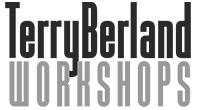press
Canvas Rebel – Meet Terry Berland
February 26, 2024
Stories & Insights
Alright – so today we’ve got the honor of introducing you to Terry Berland. We think you’ll enjoy our conversation, we’ve shared it below
Terry, appreciate you joining us today. How did you learn to do what you do? Knowing what you know now, what could you have done to speed up your learning process? What skills do you think were most essential? What obstacles stood in the way of learning more?
I first started learning how to be a casting director by working as an assistant in a Casting Department at a Madison Avenue ad agency in New York City. Things have changed in the business over the years and those jobs don’t exist anymore. You learn how to be a casting director from on-the-job experience. To be a good casting director you have to be able to recognize good talent.
I learned how to look at an actor’s photo and recognize a life behind the eyes and ultimately feel their personality. When looking at a short video demo I had to develop a sense of what was a good performance from an inferior performance. Then in the audition process I learned how to direct talent to act on camera. In addition I learned how to direct talent in their voice over auditions to deliver their best performance, all the while satisfying what the creative team who will be hiring them is looking for.
To become a seasoned casting director it does take a process. Every project you do is a learning process of developing your sensitivities. You have to learn how to use industry breakdown services to get the word out for the talent you are looking for. You must be highly organized to deal with the volume of talent who answer your casting calls (breakdowns) and develop a system that works for you to meet the deadlines you have to meet.
There is a business end of the process you have to learn regarding talent payments, contracts and industry rules and regulations. Ultimately as a casting director you are responsible for protecting your clients, whether that be the ad agency or production company, from any snafus that could occur from the beginning of the project up until the talent arrives at the shoot day.
You have to be extremely curious and open to unexpected discoveries. You have to be brave to start out with a blank canvas and trust you will find the talent you are looking for as the process unfolds. In addition, you have to have tenacity to live through the ups and down, ebbs and flows and big changes that have come about, and will continue to, due to technology.
The biggest obstacle that stood in my way of learning more was lack of time. A good example is, in addition to being a casting director where I direct talent in the audition process, I would have liked to have learned how to be an animation voice director. This means I would direct voice over talent in the actual recording of an animated TV show. As I reflect back I realize that never happened because I was too busy casting to have shadowed a mentor who would have guided me through that learning process.
Terry, love having you share your insights with us. Before we ask you more questions, maybe you can take a moment to introduce yourself to our readers who might have missed our earlier conversations?
I’m a casting director most known for both on-camera and voice over, and also a talent commercial acting coach. My professional roots were in New York City. You can take the girl out of New York, but you can’t take the New York energy and attitude out of the girl. I got into the casting industry purely by luck and happenstance. I started out working at an ad agency in New York City because there was a lot of growth potential in careers for women in that industry at the time. Ultimately, seeking a change, I moved to Los Angeles to further pursue my career and change my lifestyle.
READ Full Article Online Here.
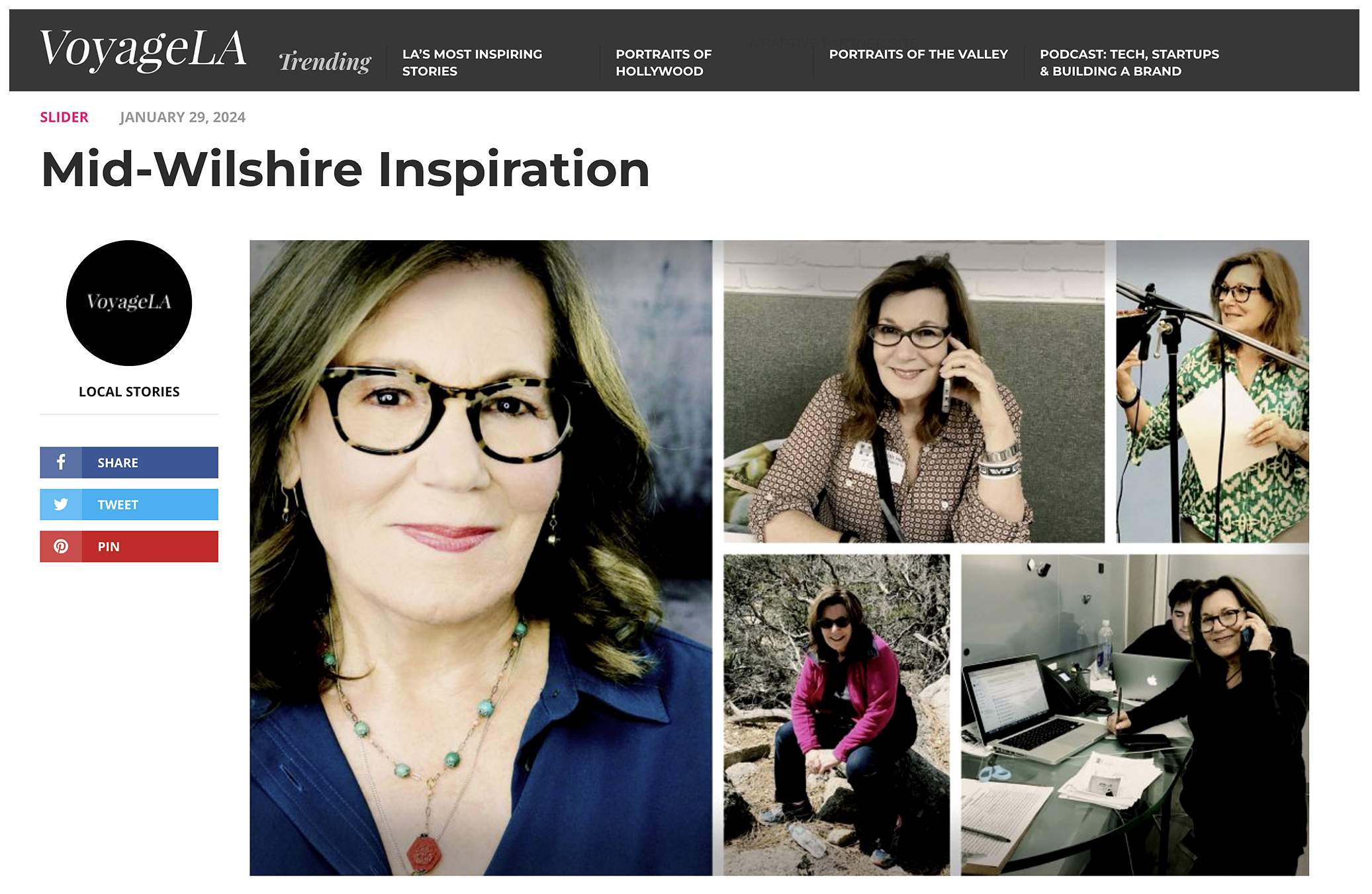
VoyageLA – Inspiring Conversations with Terry Berland
January 29, 2024
Today we’d like to introduce you to Terry Berland.
Hi Terry, so excited to have you with us today. What can you tell us about your story?
I started as an assistant in an ad agency Casting Department in NY City before there was internet. I became Head of Casting for BBDO (the third largest ad agency in the world at the time, in the late 1980s), moved to Los Angeles, and opened up my own independent casting company in 1992. I got to where I am today through staying current, adapting to the change in times and was instrumental in setting trends.
Alright, so let’s dig a little deeper into the story – has it been an easy path overall and if not, what were the challenges you’ve had to overcome?
No, it was not a smooth road. It took tenacity and a vision. It took me a while to be promoted from assistant to Casting Director when I was at the ad agency. I was in a business relationship with the largest comedy casting company in Los Angeles that did not work out; I gained and lost clients along the way.
In addition to casting, I teach both on-camera commercial acting and voice-over audition techniques.
My casting and teaching successfully went through transitions of marketing as workshops went online and marketing trends changed to social media.
Through online changes, my teaching expanded worldwide, and the entire casting process changed. To be successful is like jumping on a surfboard, catching the wave, and riding the crest of the wave fearlessly.
Alright, so let’s switch gears a bit and talk business. What should we know?
I am a casting director mainly known for on-camera and voice-over commercials, animation, celebrity endorsements, industrial shows, and independent films.
I have been a leader and recognized in influencing trends in the voice-over field. I attend theatre a lot and am always on the lookout for good actors and listen for the personality in their voices. I am responsible for starting out many actors in voice-overs. As a Casting Director, one of our responsibilities is directing talent in their auditions. I was a trendsetter in the “real” sound in voiceovers.
I had trained talent all over the United States before online classes and workshops existed. Through my conducting these training sessions I wrote a book, “Breaking Into Commercials” that is on its third edition.
I am an industry blog writer for Casting Networks Newsfeed.
What sets me apart is my admiration for actors. I help them as much as I can by sharing a perspective from the Casting Director’s viewpoint. I do this through my teaching and many educational posts on social media.
One of my strengths is a never-ending curiosity. It keeps me open-minded and creatively stimulated. When I put a breakdown out, I start out with a blank canvas and watch the role develop as I consider talent submissions. The process is full of surprises.
Brand-wise, I am known as a friendly Casting Director who is looking out for the best interest of talent. Of course, I have to keep my production clients happy, but there is a way to find a happy medium.
Is there a quality that you most attribute to your success?
Curiosity and tenacity.
READ Full Article Online Here.
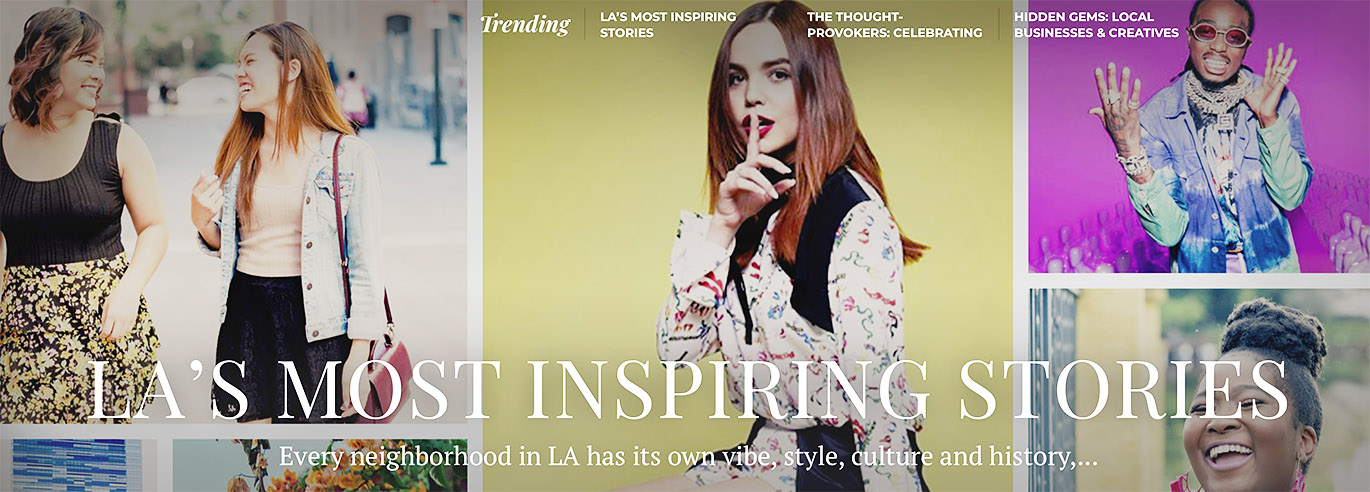
VoyageLA – Meet Terry Berland
July 23, 2020
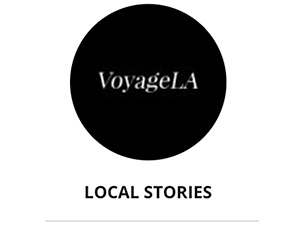 Terry, let’s start with your story. We’d love to hear how you got started and how the journey has been so far.
Terry, let’s start with your story. We’d love to hear how you got started and how the journey has been so far.
My first job was as an assistant in a Casting Department at a Madison Avenue ad agency. I worked my way up to Head Of Casting for BBDO which was the third-largest ad agency in the world at the time. I eventually moved my business to Los Angeles where I partnered in a commercial division with Liberman/Hirschfeld Casting. At the time, they were casting Seinfeld and many other iconic shows. That business then morphed into Terry Berland Casting.
Throughout the years I have cast many voice over and on-camera commercials, animation, independent films and theatre. I love giving actors work opportunities. I love the creative process of starting out with an empty canvas, searching for the right talent and watching the project take shape with the right actors making the concept come alive.
We’re always bombarded by how great it is to pursue your passion, etc – but we’ve spoken with enough people to know that it’s not always easy. Overall, would you say things have been easy for you?
It took a lot at the time to be given the full title of casting director. When I started out you had to earn that title. When ad agencies dissolved their casting departments, I went out on my own, and although I have always had a strong, successful business, I have had my ups and downs that the general public could not see. No client lasts forever, and I have had my losses. I have pursued clients that I did not get, but gotten great clients and projects that I did not expect. I have had to be flexible with all the changes in the commercial business environment, and flow with the changes, including conducting business in the current environment.
So, as you know, we’re impressed with Terry Berland Casting – tell our readers more, for example what you’re most proud of and what sets you apart from others.
I am a Casting Director specializing in on-camera commercials, voice-over, independent films and theatre; I cast whatever is in need of talent. I am known for my creativity and bringing great talent to projects. Probably the most recognizable iconic casting that I’ve done is the voice of the Taco Bell Chihuahua. I can look at a script and imagine what characteristics an actor will need to make each role work.
I am also an acting teacher. I teach talent how to act in television and VO commercials. I have started thousands of talent off in their careers all around the country. I’ve seen most of the United States through my teaching and met wonderful people in the industry along the way. I am also co-author of the book “Breaking Into Commercials” which is on its third edition.
What sets me apart: My advertising background lends to my deep understanding of how to analyze a script and direct talent in a casting session or in a coaching session. My passion is to help actors achieve their goals. I am enjoying a proven track record of successful casting and teaching actors how to act in a commercial that gets them agent representation and better changes for bookings. I’m always listening and finding ways to stay fresh.
So, what’s next? Any big plans?
In the current environment, my goal is to keep actors working, keep casting and teaching. I’m going to continue creating and expanding a community empowering actors.
READ Full Article Online Here.

Actors – How To Get On A Casting Director’s Radar
Written by Ilana Rappelled for NYCastings website
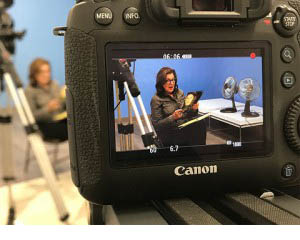 Actors, today you’ll read how to get on a Casting Director’s radar. Four prominent Casting Directors; four different perspectives on casting. We interviewed four CDs who work with different types of people and companies looking to book and protect clients.
Actors, today you’ll read how to get on a Casting Director’s radar. Four prominent Casting Directors; four different perspectives on casting. We interviewed four CDs who work with different types of people and companies looking to book and protect clients.
You will gain insight to what makes a CD tick and what they are looking for, or not looking for, when booking productions. From child actors, voiceovers to stunts to workshops and auditions, please meet, in no particular order, Casting Directors Steve Garrin, Susan Johnston, Terry Berland and Nancy McBride!
Terry Berland, CSA
How and when did you become a Casting Director?
I started out as an assistant over 25 years ago when commercials were cast out of Ad Agencies on Madison Avenue, NYC. There were no freelance commercial casting directors (or internet, or computers for personal use) at the time. I worked my way up, until I was hired as a full casting director. Eventually, I became Head Of Casting for BBDO/NY.
You have a strong philosophy to protect your clients from unexpected complications. Some of your clients consist of actors flying from wires, NASCAR racing, fisherman, truck drivers, as well as def poetry jam, models who can act, and seasoned actors with Broadway, film and TV backgrounds.
Give us some examples of complicated situations that arose that you helped navigate.
Actually, actors are not my clients. I do not represent talent and do not take any commission from talent. My clients are the ad agencies and production companies who produce the commercial spots. I protect both talent and my commercial clients by ironing out all the terms of agreement before the actor accepts working on a spot both monetarily and safety-wise. If all details are not clear and spelled out before the shoot, production could be a very messy situation at the time of signing the agreement. In addition, if safety measures were not spelled out, or payment agreed to for anything other than normal activities, the actor could be taken advantage of or put in a potential dangerous situation.
You offer workshops for people who want to educate themselves on getting more callbacks and booking more commercials and voiceovers. What do your workshops offer that differ from other workshops?
For on camera training, I approach a commercial as one might create a theatrical (film and television) short scene. There are similarities and differences. Anyone who acts theatrically will learn how to translate their acting to commercials. Anyone who does not have prior acting experience will be introduced to a basic acting approach. The people who book commercials can very quickly let out who they are and how they feel, in an honest way, unique to their own personality. I work with what empowers each person as part of the process. After the first session training with me, the actor will be able to create a short scene performance that is bookable, with only six words.
The length of time of the workshop training varies. My website lists all workshops. Also, follow Berland Casting on Instagram for IG lives and acting tips. We then also will be able to see what you are up to.
As we are always up-to-date, all our workshops during Covid-19 are on-line via Zoom. I have people from all over the country (and the world) now able to join and train. However, I do keep the workshops small. It’s better for the talent and more enjoyable for me.
I also have Voiceover workshops. The goal to understand how to analyze a piece of copy and how to apply your voice to the branding of the spot. I put people through processes which unfolds from understanding to a comfort level on mic.
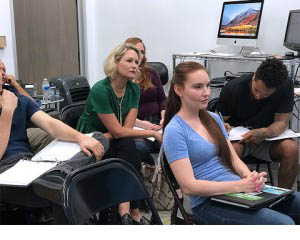 People can purchase your book Breaking into Commercials: The Complete Guide to Marketing Yourself, Auditioning to Win, And Getting the Job here: https://amzn.to/37g9QG6.
People can purchase your book Breaking into Commercials: The Complete Guide to Marketing Yourself, Auditioning to Win, And Getting the Job here: https://amzn.to/37g9QG6.
Yes, the book is offered on Amazon.
What projects are you currently working on?
I am not allowed to talk about any specifics of my projects. Right now, it’s just on-camera commercials and voice-overs reflecting what’s now trending. I cast a lot of Independent films, but at the moment they are not in preparation for production.
How does an actor get on your radar so they can audition for you?
The best way to get an audition on any of my projects is to watch out for any breakdowns that I put out directly to actors. An actor can send picture post cards, email me (email appears on website) or appear on Instagram. Postcards are better for me than email. When things are normal, letting me know when you are in any theatre that I can go and see and creating your own projects that you let me know about via email or post card.
Anything else you’d like to say?
We are a community. Casting Directors need good actors. It is my intention through my workshops to keep actors working. You can visit Terry Berland’s Website and Workshop Site.
READ Full Article Online Here.

Veteran L.A. Casting Director Terry Berland On Helping Actors Make The Connection
Written by Kurtis Bright for NYCastings website
 Most of the time, casting directors have very specific areas they focus on: commercial, film, or television, for instance. Especially when it comes to voiceover versus on-camera work, most CDs do one or other — rarely both.
Most of the time, casting directors have very specific areas they focus on: commercial, film, or television, for instance. Especially when it comes to voiceover versus on-camera work, most CDs do one or other — rarely both.
But Terry Berland of Berland Casting in Los Angeles isn’t your typical casting director. A New Yorker born and bred, Berland got her start working in advertising on Madison Avenue, cutting her teeth casting both the actors to be used on camera in agency-produced spots, as well as those who would do the voiceover. By the time that kind of in-house commercial casting had started to decline, Berland had climbed to the top of the profession, heading up casting at Madison Avenue ad powerhouse BBDO Worldwide.
So it made perfect sense that she would continue casting commercials, opting to head out West to open up and partner in running the commercial division of Liberman Hirschfeld Casting for a time before opening her own shop. It also made sense that she would continue casting both voice and on-camera talent, as she has done for the past 25 years, and continues to do out of her Wilshire Boulevard offices.
When she’s not casting projects like “Invader Zim,” or “Whining Low,” Berland enjoys helping out actors by teaching high-quality classes and dispensing her accumulated wisdom from sitting behind the table in thousands of casting sessions through her book, “Breaking Into Commercials.”
She was kind enough to take some time out of her busy schedule to chat and offer some thoughts for actors.
On The Relationship Between Casting Directors And Actors:
Casting directors are only as good as the actors they bring in. So an actor needs to feel very much a part of the process, equal to the casting director. They should come in with the attitude: ‘I’m here to solve your problem. [I] have a creative choice, and it’s my way of solving your problem. Your problem is that you want to find the right person to make this character come alive.’ So maybe a big mistake is for an actor to walk into a casting and not feel like a part of the process. A big part of the process.
On The Similarities And Differences Between Voice And On-Camera Acting:
A similarity for the actors is you have to connect. And obviously there’s different techniques. There’s techniques for connecting on camera: for on-camera it’s like a short scene. For voiceover, you have to connect also, so that’s similar. The difference with voice acting is, because you’re only hearing the voice, the actor has to know how to subtly change things, and convey their message with a lot of nuances in their read. In on-camera you have the visual to help the message along, but with voiceover you only have your voice. There’s transitions in copy: maybe you start out bright, then there’s a discovery, then there’s an invitation to do something, and then a result. And that all has to come from nuances in your voice.
On Teaching:
I’ve been teaching for years. I love educating. I teach on-camera based on short scene study. Voice-over is based on fundamental acting techniques too. The method I use is proven; people book more, get more callbacks, get agents. So it’s very satisfying. We just have to be very, very clear, when we’re a casting director that they’re coming to learn from us, and they’re not coming to audition. It’s teaching. The rules that we follow to teach are very strict in Los Angeles.
On Giving A Good Audition:
Auditioning well is based on acting. The biggest mistake is not realizing they need to be an actor. Even when it comes to, ‘Slate your name and tell me something about yourself,’ it takes a certain way. In commercials, you need to look at that camera and be open and friendly and decide what you’re going to say with a personality. If its an improv they have to know how to do a commercial improv.
On Being Needy As An Actor:
There’s just so many different things that can go wrong when talent is in the room. I would say one big thing is they should know what they’re doing – they should be confident, yet friendly, not above it all, they should know what empowers them, and they should not come off as needy. Because when there are clients in the room, you’re with the very people that can book you. And some people behave in a very needy way. We can feel it, and it’s not attractive.
On Dealing With Mistakes In An Audition:
If you’re doing a commercial read, and you make a mistake, improv around your mistake and try to get back on track. One of the worst things to do is to apologize and be down on yourself and make it a big tragedy that you made a mistake. Someone that’s really trained, in a fun way will try to improv around their mistake, and then either they get back on track or they don’t. A mistake can actually be a little gift. Knowing how to improv around that mistake can be a real gift.
On Crossing Lines:
When it’s a callback don’t cross a line figuratively or literally. You wanna stay on the mark that you’re given, and don’t walk over to [the clients] and start shaking their hands and saying ‘It’s so nice to meet you!’
On Connecting With The Casting Team Without Being Needy:
The best way to make a connection is to be good at what you do. Be friendly, open, say hello. But you don’t want anything from them. Don’t be attached to getting the job. The best actors go in, they do the best work they can, they’re well-trained, they know they did a good job, they leave, and forget about it, and go to the next one. And it’s an interesting dance, because of course you want the job. Let’s not pretend you don’t want the job. But you can’t have so much invested in that one particular job. Your job is to go in and give a good audition, and then the next one, and the next one.
On Being Neutral:
So I’d say another bad mistake actors make is they’re afraid to make strong choices, and they neutralize their audition choices. If you’re neutral you’re no place. You have to be distinct. We love when everybody’s good. I could have 25 actors come in and read for the same role and they’re all really good, they’re all just a little different. And then it’s subjective from the people who are choosing them, because the casting director doesn’t book them, it goes to the selection process.
On Choosing Where To Plant Your Flag As An Actor:
I would say go where you feel more comfortable, where you like the lifestyle. Good things are going to happen in [New York or L.A.], but the main thing is that you like the lifestyle initially. You should be happy with how you’re living, and where you’re living and then the right things will come to you. I know a lot of actors who do this: once they get started in one place, they then see thing more clearly and they reassess things and realize they want to live on the other coast because of their needs, their career needs, so they just make the switch. And say you start out in New York – there’s great training that’s really respected. Make sure you take full advantage of where you are. If you decide at a later time that you got everything you’re going to get out of that market, then you can always switch. But enrich your resume wherever you are.
READ Full Article Online Here.
Find a Workshop
“Terry is a wonderful teacher who knows how to peel away what is getting in the way of you being you in the audition room. Everyone is given individual coaching and enough practice to leave energized every week.”
DISCLAIMER
Terry Berland Casting is bonded with Sure Tec Insurance Company (#5090690) as required by California Labor Law. This is A class/workshop/showcase and is NOT a job interview or audition or representation opportunity WHATSOEVER. The presence of any teacher, casting director/associate, agent or manager is neither a guarantee nor a promise of employment or representation. It is 100% NOT an audition or employment/representation opportunity. The intent of the class/workshop/showcase is solely educational, a learning and networking experience. When the class/workshop/showcase is over, the teacher/casting director/casting associate/talent agent/talent manager (whichever is applicable) attending this workshop will NOT be taking home nor be given access to your headshot, resume, business card, DVD or any other of your promotional materials; instead, these materials will be used during the class/workshop/showcase ONLY, and will be returned to the actors at the conclusion of the class/workshop/showcase.
